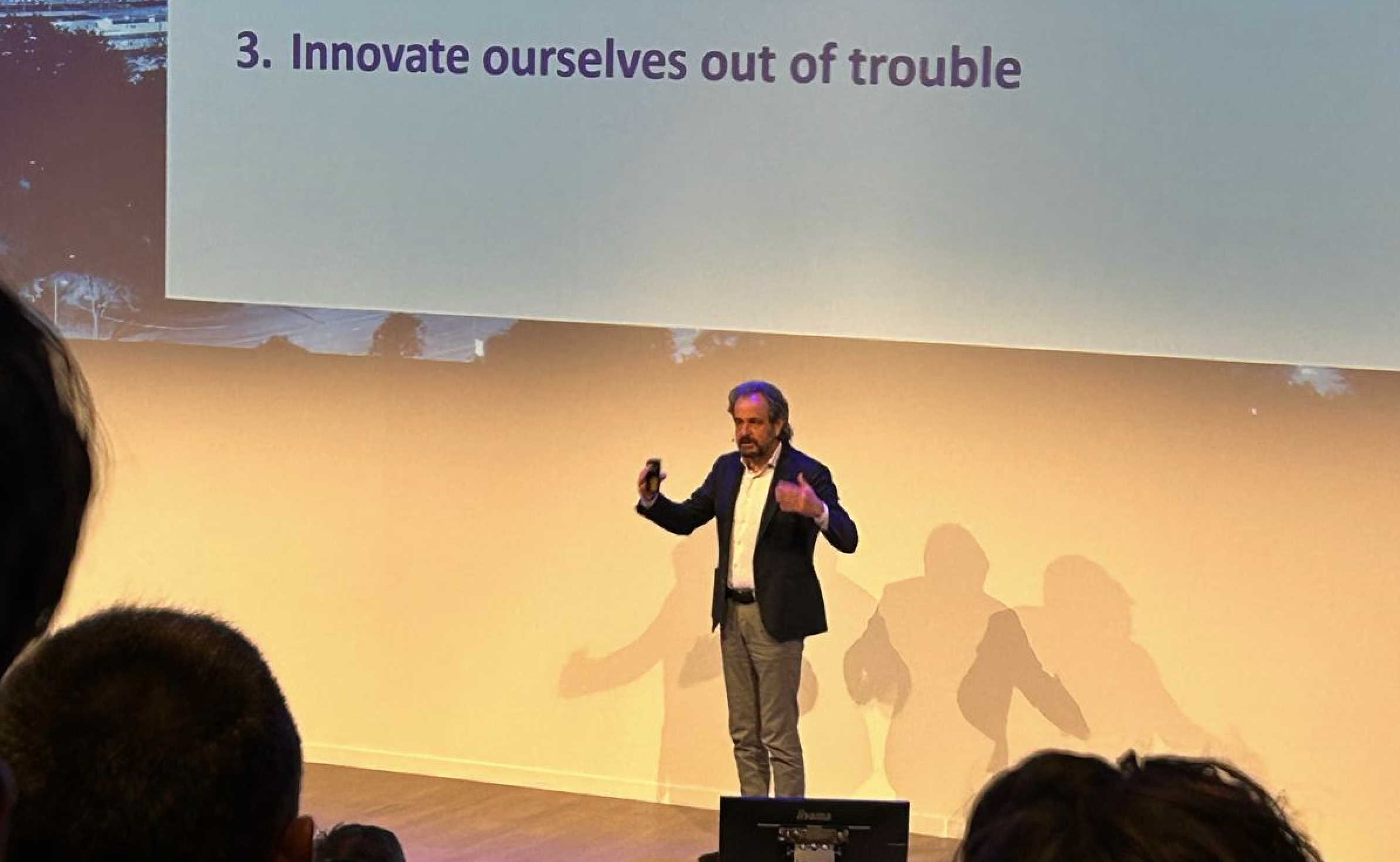
Scaling a startup into a sustainable, larger enterprise is no small feat, especially in the dynamic field of artificial intelligence (AI). During the recent LEVEL UP event in Eindhoven, a panel discussion brought together industry leaders to tackle this very topic. Moderated by Thomas Mensink of Golden Egg Check, the discussion featured Fabrizio Del Maffeo, CEO of Axelera AI, Hans de Penning, co-founder and CEO of Neople, and Maurice Beckand Verwee, partner at Curiosity VC. Together, they shared their insights on scaling AI startups, navigating funding challenges, building the right team, and creating a solid company culture.
Opportunity and challenges
Delving into introductions, Hans de Penning explained that Neople is an employment agency for AI-driven digital employees, offering companies solutions to scale operations without merely increasing human headcount. He emphasized that the company aims to address real customer problems, a focus that has helped them secure funding from investors like Curiosity VC.

Maurice Beckand Verwee of Curiosity VC described his journey from scaling his own companies to becoming an investor. Curiosity VC focuses on pre-seed and seed AI companies in areas such as prop tech, fintech, and logistics. Fabrizio Del Maffeo, co-founder and CEO of Axelera AI, explained how his company designs an AI hardware and software platform for accelerating artificial intelligence in various devices. Axelera, which raised $68 million this year, began as a stealth project that took 18 months to assemble the right team and align market opportunities.
The path to growth
The discussion quickly moved to the practical aspects of scaling a company. Del Maffeo shared Axelera AI’s experience of growing from a small team to over 180 people in just three years. A key factor in their success was recognizing the potential in the market and the need for innovative solutions. However, scaling meant navigating significant challenges, particularly in raising substantial capital. “You must be a little crazy to start such an adventure,” Del Maffeo said, noting the importance of perseverance when seeking funding.

For Hans de Penning, scaling meant strategically choosing the next market. Neople recently opened an office in Berlin, a decision fueled by a combination of traction in the Dutch market and the need to demonstrate their ability to expand beyond domestic borders. He highlighted the importance of building a strong team and company culture from the start: “Four people from our team are now living in Berlin to really build the culture from the ground up.”
When and how to seek investment
Funding, especially for AI startups, is a critical part of scaling successfully. Del Maffeo pointed out that raising $68 million for Axelera AI involved proving their product’s market fit and scalability to investors, even without significant revenue. For AI companies focused on hardware, finding investors willing to take the risk can be especially challenging. Despite this, Del Maffeo emphasized, “The KPI investors look for is market traction—if customers are willing to buy your product in millions.”
Maurice Beckand Verwee provided insights from an investor’s perspective. He stressed the importance of early validation and warned founders against seeking funding prematurely. “Many founders can find way more validation points earlier on without raising any capital,” he explained. To filter out unsuitable investment opportunities, Curiosity VC relies on a network of experts for technical assessment and market fit, ensuring they invest in companies with strong foundations.
De Penning echoed the importance of early customer validation, which helped Neople secure funding in its first year. He shared that Neople’s initial traction and ability to solve real problems played a crucial role in attracting investors, enabling them to raise additional funding to fuel further growth.
Building a scalable organization
Another key topic was building the right team and company culture. Del Maffeo revealed that Axelera AI started with a distributed team across three countries, which helped attract talent but presented challenges in maintaining a cohesive company culture. To address this, Axelera ensures regular in-person meetings and encourages team collaboration despite the geographic spread.
De Penning discussed Neople’s approach to scaling its team and organization, highlighting the importance of building a strong foundation before expanding. He advised other founders to be cautious about the timing of their moves, ensuring they have validated the market and built internal strength. “It’s about finding the right people who can solve the problems you’re going to face in the future,” added Del Maffeo.
Beckand Verwee reinforced this view, underscoring the necessity of iteration in company culture as a startup grows. “You need to constantly adapt to new situations,” he said. He also pointed out that founders should be self-aware and evaluate whether they are the right person to lead the company through different growth stages.
Knowing when not to seek VC funding
A question from the audience raised an important consideration: when should startups avoid seeking VC funding? The panelists unanimously agreed that if a startup can scale without raising venture capital, it should consider doing so. “If you don’t need to raise money to build a company, please don’t,” advised De Penning. Del Maffeo added, “It’s about your plan and what you need to achieve it.”








